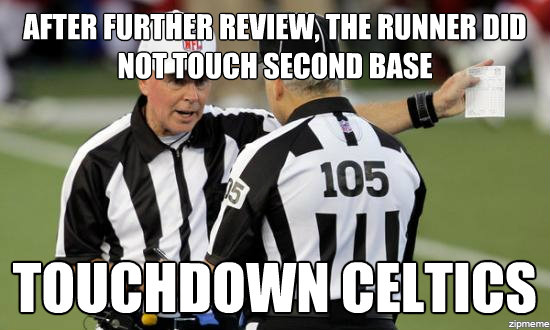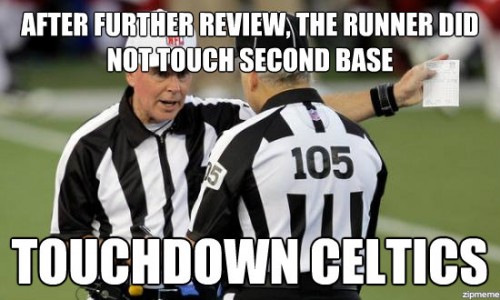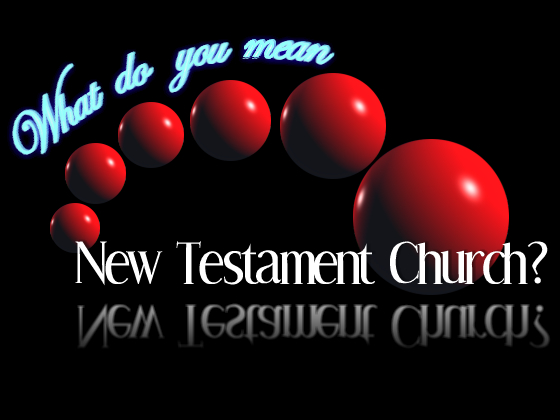
Yes, I stayed up way too late last night to watch the end of the Seattle vs. Green Bay game on Monday Night Football. No, I can’t stop thinking about the unbelievable job that the replacement referees did at the end of it. The only way I can describe it is that it was total – no, wait – TOTAL chaos. A phantom pass interference call on a Packers DB who got mugged by the Seattle wide receiver, and then the jump ball at the end of the Hail Mary pass by Russell Wilson that was called incomplete, no, an interception, wait, no, that’s not right – a touchdown on the last play of the game.
Whoops, my bad. The second to last play of the game, because after all the on-the-field post-game interviews the teams had to send back out 11 players each from the locker rooms in order to kick an extra point that was meaningless unless the spread for the game was 1.5 points (in which case you were either a very happy or very sad gambler).
All of this took place in a sea of screaming Seahawks fans with some disbelieving, drooping Cheeseheads sprinkled in. The announcers were beside themselves in unbelief of the touchdown call, and I think I heard Jon Gruden say the same thing about 20 times (which is almost normal for him, anyway, but not 20 times!) as he tried to process what he’d just seen. More than one player and/or coach made comments like “in all my years in football, I’ve never seen anything like it” and as a fan of neither team, I felt my neck getting hot just thinking about how hard it would have been to watch the same replay for the hundredth time if I had been a Green Bay Packers fan. In a word, it just felt…
wrong.
And while I could spend the rest of this column debating whether or not the NFL has lost its integrity by allowing men who used to referee women in skimpy underwear to now referee men bigger than trees, I’d rather point out something a little less obvious but probably more important: if you live on this planet, at some point, somewhere, you’re gonna get screwed. It’s not a matter of if, but when. And as much as Christians (especially here in America) want to think that following Jesus provides a magic exempt card from unfair calls, even we get handed a raw deal from time to time. In fact, I would almost argue that because we follow Jesus, we open ourselves up to more unfair situations than they average person, but you don’t have to agree with that to get the point of this post.
Sometimes, no matter how hard we try, it just feels like life is a game being called by replacement refs. We do the best we can and then out of nowhere comes a bad call and we are helpless to change it. We feel like the Packers team did last night. The wrong is so obvious, and yet it’s equally as obvious that it won’t be corrected…yet.
In Luke 18:7-8, Jesus talked about how Packer nation felt shortly after midnight last night. He said that God is a God of justice, and that he will not ignore the cries of his people. Thankfully, God isn’t the National Football League, who will more than likely continue to ignore the cries for justice from coaches, players, fans, and water boys all over the country. I won’t hold my breath waiting on the NFL to bring back the real refs, but I do have to answer the question about whether or not I’ll keep the faith while I wait for God to correct the wrongs in this life. And so do you.
Jesus said that when justice comes, it will come quickly, and then he asked a simple question: “when I return to bring justice, will I find faith on the earth?”
The real issue isn’t whether we’ve been treated unfairly in this life, but whether or not we’ll allow the injustices of this life to move us closer to Jesus. At the end of the day, bad calls get made – by real refs and fake ones alike – but how we respond to them is 100% in our hands. Nobody likes injustice, including God. And since he’s ultimately the only one who can fix it, I’m choosing to keep holding hope that some day he’ll return and right the wrongs in this life.
Keeping the faith won’t reverse the bad calls from last night (or the last 3 weeks of games), but it can reverse something a lot bigger than a professional football game.
It can reverse the course of our lives.












